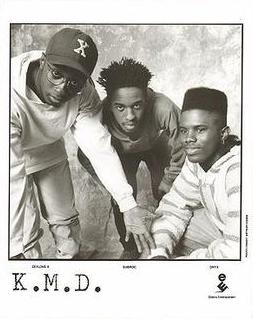From the time he was 10 Michael Jackson grew up in front of the world – first wonderfully, then weirdly, then woefully. His death at just 50 is hard to quite process. A tragedy? Yes but I’m not sure if it’s any more tragic than the grotesque implosion of the rest of his life. I thought Hua had it exactly right: “Different versions of Michael Jackson had already died years ago.”
A similar point was echoed by my friend Eliani while we were noshing at 2am at the Taco Zone truck, following a two hour MJ5 tribute set with Wil at the Shortstop. In between bites of carnitas, she proffered (I’m paraphrasing), “depending on when you grew up, each of us has a different Michael Jackson we knew and lost.”
I was lucky to have grown up with one of the incadescent MJ incarnations. I probably heard a J5 song at some point in my ’70s childhood but I don’t actually remember hearing a Michael Jackson song until “Don’t Stop ‘Till You Get Enough” and the Off the Wall album came out. I was probably 7 or 8 then, just discovering the radio and top 40 and so my exposure to the expansive world of pop was indelibly marked by his presence.
It’s been an interesting process, trying to decipher what exactly made him so great. After all, and this is not meant to be remotely disrespectful, but while Jackson clearly helped sell a gazillion records, if you actually parse down his musical impact, he’s overshadowed by any number of peers. Some have had a greater, overall presence on pop music (James Brown + The Beatles), others have stayed in the mix as a creative force with more consistency (Dylan), and certainly, there’s been other artists just as commercially successful but more adventurous (hello Prince!).
That said, consider how a pre-pubescent child managed to score success on par with Marvin Gaye at the turn of the ’60s/’70s, then gradually pull away from the machine (or if you prefer, The Corporation) that fueled his success, only to emerge into a solo career that didn’t simply improve on his achievements but elevated him into the greatest pop artist of his generation.
Child singers are simply not meant to survive into adulthood. I can only think of two similar examples: Stevie Wonder comes to mind but Stevie never had the kind of instant success that the Jackson 5 provided Michael (that said, Stevie’s creativity is unparalleled, including by Michael). The other would be, interestingly, Celine Dion. Do with that what you will. However, those exceptions aside, pop music history is littered with the ghosts of child singers whose careers disappeared with the onset of puberty.
Whatever the truths of Jackson’s childhood (idyllic vs. tortured), what you can say is that he had to shoulder the same kind of creative challenges under the Motown system that his colleagues – thrice his age – were also dealing with. Not only that but he was expected, long before he was old enough to even drive, to emote the kind of passion, longing and melancholy that usually only repeated adult heartache gives you access to. Emotionally, he had to grow up in his singing much faster than what his physical age would otherwise belie. It’s common to talk about J5 songs like “ABC” being “filled with innocence” but if you listen over the group and Jackson’s solo catalog from the 1970s, there’s a lot less sunshine than you’d imagine. That he managed to drop iconic, hit records throughout most of that process (with the exception of a fallow period in the mid-’70s) is a testament to his talent/genius/luck/whatever you want to call it.
And therein, to me, lies both the triumph of his achievements but also the makings of his (and in a sense, our) tragedies. As Jeff Chang argued, “for that voice, he lost his childhood. Or more precisely, he gave it to us,” which isn’t quite like saying he died for our sins but I think part of what Jeff is suggesting is that if Michael wasn’t blessed with such a magical presence, we may not have liked him so well. And if we didn’t like him so well, maybe his life would have turned out more normal, less (self)-destructive. These “what if” scenarios are impossible to answer, of course. All we know is the Jackson we were given and if his life is to be read as a kind of sacrifice to our pleasure, at least we can honor that by celebrating his libations.
Consider too: Jackson was a once-in-a-lifetime musical (and of course, cultural) figure, the likes of which will almost certainly never be duplicated again (sorry Jonas Brothers). The pop landscape has shifted, irrevocably I feel, over the last 10-20 years and the ability for a singular figure to become a multi-generational crossover star seems practically impossible. Of course, it probably seemed impossible back in the ’70s…until Michael did it.
I should add too: for all his foibles, scandals and just general surreality, I absolutely guarantee you that the music Jackson and his family left behind will only evolve to seem more sublime, enchanting and moving [1].
Ok – so enough about legacy; next time I pop in, it’ll be to talk about Jackson’s music. In the meantime, here is arguably the most memorable performance MJ gave. It is still incredible some 26 years later.
If you feel like it, here’s me and Jay Smooth musing on MJ for The Sound of Young America, recorded earlier today.
[1] This presumes there isn’t some smoking gun evidence which comes out posthumously that MJ was indeed, guilty of child molestation. But even his music could likely survive that.



chatter